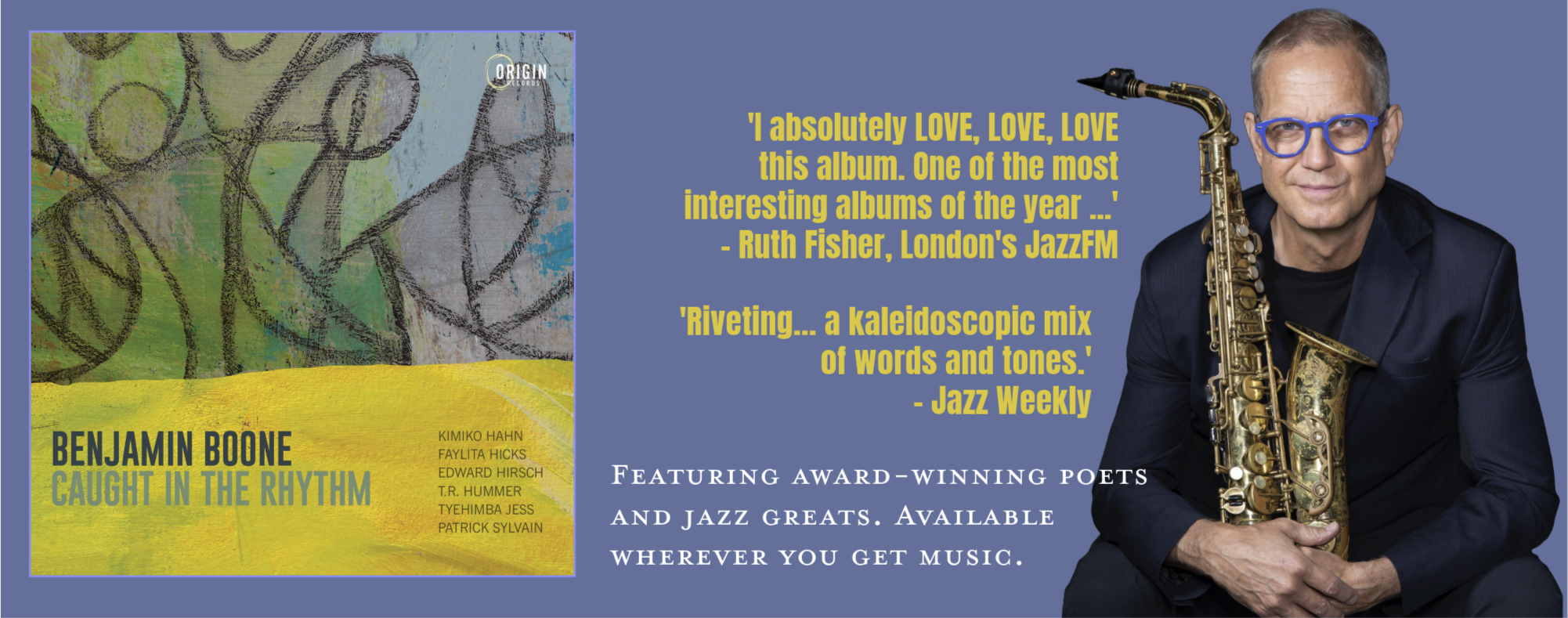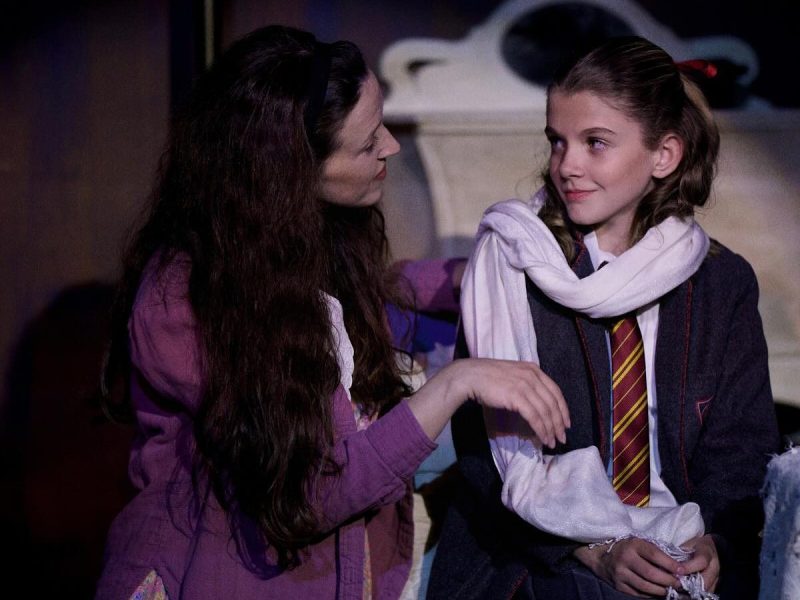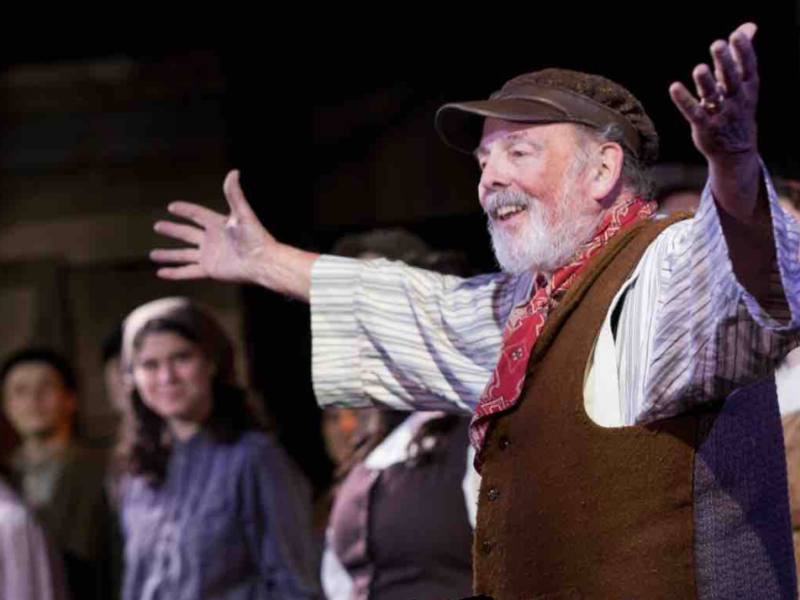Review: Brush up your Shakespeare in the moving and fascinating ‘Book of Will’
THEATER REVIEW
As “The Book of Will” opens, it’s been three years since William Shakespeare strutted and fretted his last hour on (and off) the stage, and in the post-death doldrums following the loss of London’s famous Bard, there is much to think about: Will anyone remember him in a couple of dozen years? Can anyone stop the egregiously inaccurate versions of his famous plays that are proliferating all over the city? Was it perhaps a teensy bit shortsighted for no one to write down complete versions of those plays when he was alive? And just what is the past tense of fret?
Pictured above: Sunshine Cappelletti, center, plays Rebecca Heminges in ‘The Book of Will.’ Photo: StageWorks Fresno
Part sober historical docudrama and part light-hearted stage sonnet to the joys of the theater, this intriguing take on the preservation of Shakespeare’s legacy is brought to life by director J. Daniel Herring in a rousing production by StageWorks Fresno. Lauren Gunderson, the playwright, acts as tour guide, literary critic and part-time theater groupie. Her work takes a slice of history that you probably never considered and illuminates it in a way that brings to life the friends and frenemies who surrounded the English language’s most famous writer.
Some musings on the show, which continues through Sept. 22 at the Fresno Art Museum’s Bonner Auditorium:
Related story: Where there’s a ‘Will,’ there’s a way for Mark Standriff to revel in joys of theater
The storyline: We’re introduced to Shakespeare’s best friends, the jovial Henry Condell (Aaron Spjute), worry-wart John Heminges (Mark Standriff), and gregarious Richard Burbage (Joel Abels), the core of the King’s Men. They’re gamely keeping the Bard’s name alive at the Globe Theatre by continuing to produce his plays. But when Burbage follows in the path of Will and heads off to the undiscovered country, the idea of mortality truly hits the remaining pair of friends. Especially affected is Henry, who worries that no authoritative source of Shakespeare’s work exists. He suggests a project to pull together all of the plays into one official volume. What follows is what you can think of a “public or perish”-style quest tale that gives a detailed rundown on what it took to actually get a big book published back in the 17th century. (The guys want to publish a thick, expensive folio rather than the cheap “quartos” floating around that contain error-riddled Shakespearean works.)
My take on the script: Full disclosure, I fidgeted a little during the first half-hour, which seems so heavy on the set-up that it can feel more like a class lecture than a well-constructed play. Gunderson’s biggest challenge, I think, was that we all know the outcome of this story: Shakespeare’s work was preserved. Obviously. That’s why we’re here. It takes a long time for the dramatic texture of the play to emerge. When it does, however, later in the (very long) first act, I finally felt myself getting wrapped up in the world of the play.
The themes, part 1: It’s interesting how the Bible and Shakespeare seem to intertwine in Gunderson’s tale. The Bard’s work becomes something akin to a sacred text, with the original disciples (his friends) striving to preserve the “authentic” version for posterity. Of course, given the haphazard record-keeping of some of his plays — the compilers often relied on on scraps of text, including the “sides” that actors used for their roles, and years-old memories — it’s easy to assume that some of the work was lost. Then again, think of how the written version of the New Testament came together, some of it dozens and even hundreds of years after Jesus lived. (Take a dive into the history of the early church, which includes various councils, a gaggle of heretics and a number of books that didn’t make it into the accepted canon.) The Bible’s “infallibility” is a key part of many people’s faith, and in this play, the comparison with Shakespeare made me think about our reverence for him (or lack thereof) as well. Today in the theater, we often chop Shakespeare’s words by more than half in a production; we edit, delete, condense, transpose, change settings, mix up genders and much more. Which is more important: fidelity to words, or finding the heart of the story?
The themes, part 2: Extending the religious angle, “The Book of Will” is a testament to the act of acting, you could say, and how the theater can itself become a sort of secularized religious experience. (You have the “temple” of the performance space, the “priests” with the performers, the makers of doctrine with the directors.) In one of the most powerful scenes in the play, set on the stage of the Globe Theatre, Henry and John ponder the fine line between the make-believe of acting and the connection to real life.
The production: Herring infuses the intimate production with a tangible love for Shakespeare. Abels’ set, dominated by blown-up versions of pages from “The Merchant of Venice,” “Hamlet” and “The Tempest,” has a rough-hewn, plank-heavy feel as it becomes a tavern, cemetery, print shop and Shakespeare’s Stratford home. Rachel Hibler’s costumes give texture and authenticity to the production (love those hats), and Dan Aldape’s lights help make the small stage feel expansive.
The Munro Review has no paywall but is financially supported by readers who believe in its non-profit mission of bringing professional arts journalism to the central San Joaquin Valley. You can help by signing up for a monthly recurring paid membership or make a one-time donation of as little as $3. All memberships and donations are tax-deductible.
The performances: The cast is strong, from the understated (but ultimately deeply affecting) Spjute to the luminous Bridget Manders Martin (who plays his wife, Elizabeth, and also the poet Emilia Lanier, one of Shakespeare’s lovers. In this role, thanks to her features and bearing, she radiates a finely etched Elizabethan sensibility.) Chris Carsten and an accomplished Michael Fidalgo make a memorable father-son duo. Karina Balfour, Dakota Simpson and Randall Kohlruss all have key deftly played moments.
The standouts: I was deeply moved by Standriff and Sunshine Cappelletti, who portrays his wife, Rebecca, not just for the emotional heft they bring to the production (the play’s most affecting scene occurs between them), but also the solidity and authenticity of their performances. They bring to their roles the disciple’s absolute conviction — a burning, evangelical certainty that words do matter. For a play about saving some of the most important of those words ever written, that’s a compliment, indeed.









